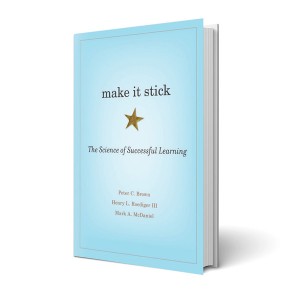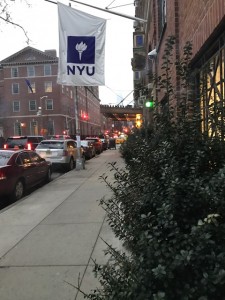I can attest to the struggle of finding one’s footing upon entering the anxiety-filled halls of freshman year. I remember very clearly being incredibly excited to set out upon an adventure that I had imagined thousands of times through in my mind. However, that didn’t mean that I wouldn’t encounter trials and tribulations that I would learn from. This era was the time in my life when I began to see the most physical change my body had ever undergone. In many ways, were my choices both good and bad, healthy and unhealthy, mature and immature, etc. Sophomore year of college made me aware of how important it is to spend one’s time wisely, in taking action that will propel your entire life in a positive direction, because the time so quickly escapes you.

(Photo Credit: http://www.free-management-ebooks.com/news/bains-rapid-framework/)
So what does it mean to wisely spend one’s time as a new college student, fresh blood upon the quads and campuses of universities that are dominated by more intelligent, more attractive, less awkward individuals, and push one’s life in a “healthy direction”? Well, having experienced my sophomore year living in a dorm over one hundred years old with one roommate and six other suite mates…and two bathrooms, I can attest that there is a necessity to be ever aware of three important aspects of one’s life: hygiene/healthy eating, time management, and prioritization of long-term goals. If these things are kept in mind, then it is much less likely that someone will arrive into a bedlam of their own. There will be difficult times, but one has to remember to always be maintaining your happiness and the sources of that for you. For me, being “happy”, or in a good mood, was always very influenced by the things I had recently eaten. And, if you are or ever have been a college student, you will understand that diet, what you are eating everyday, is one of, if not the, greatest influences on your overall well being and must be well maintained.
Saving money, snatching the best promos, having fun, or discovering one’s passions is always going to be on the mind of new college students. However, I found that this focus tends to detriment the decisions made about dieting, hygiene, and the general effort that is
![]()
directed toward one’s academics. Let me assure you, if not enough value is endowed to hygiene/health, time management, and prioritization of long-term goals, than a path to bedlam will surely be paved.
(Photo Credit: https://chefman.com/healthy-living/)
In terms of being healthy, of feeling energized, of feeling ready for obstacles,, and to face life with a level headed mind the upkeep of the mind and body holds the greatest import. The vegetables, fruits, balanced meals, non-sodas are much healthier options than the typical fast food that college students flock to, and I know first hand that what I am saying is a difficult thing to put into practice.

(Photo Credit: https://www.istockphoto.com/vector/healthy-food-vector-diet-for-life-nutrition-modern-balanced-diet-isolated-flat-gm875565078-244425912)
Sometimes, at 3:00 AM, a cheeseburger, or some greasy tacos, or a breakfast burrito just sounds like an absolute necessity, but the will can remain steadfast! I have seen snacking, sodas, excess alcohol, drugs, and fast food deal irreversible damage on college students who showed promising potential. When there is academic material to be appreciated and learned from, or when there is an exam looming that requires heavy preparation, whatever the task may be, it is always disadvantageous to perform those tasks while not at one’s full capacity in both mind and body.
I understand the desire to live out the college life depicted across pop-culture. However, the University and the system of higher education exists first and foremost to satiate the desire to learn. To progress the intellectual and deliberative processes of the human mind, and propel an individual, who has sought such training, positively forward in their life. The Bedlam that I once knew came upon me quickly and without remorse, because I turned a blind eye to this understanding and allowed my momentary happiness to overshadow my long-term life goals. I write, now removed from my Bedlam of Sophomore year of college, with greatest hope that these words can better prepare new college entries to pave a path away from Bedlam and toward jubilant amelioration.
By James Rodriguez
James Rodriguez is a recent college graduate from New York University, who, after experiencing a diverse range of trials and tribulations in undergrad, is seeking to share his lessons learned with those who can capitalize on them today. Originally from San Antonio, Texas, he found living in New York City drastically different from what he was accustomed to. From this time of transformation, readjustment and reevaluation James now seeks to utilize the lessons and understandings that he gained to better the experiences of those who face similar experiences. Working in tandem with the Campus Clipper, James now has the platform to share his words and experiences with greatest hopes that the difficulties he faced will be ameliorated for others.
For over 20 years, the Campus Clipper has been offering awesome student discounts in NYC, from the East Side to Greenwich Village. Along with inspiration, the company offers students a special coupon booklet and the Official Student Guide, which encourage them to discover new places in the city and save money on food, clothing and services.
At the Campus Clipper, not only do we help our interns learn new skills, make money, and create wonderful e-books, we give them a platform to teach others. Check our website for more student savings and watch our YouTube video showing off some of New York City’s finest students during the Welcome Week of 2015.



















